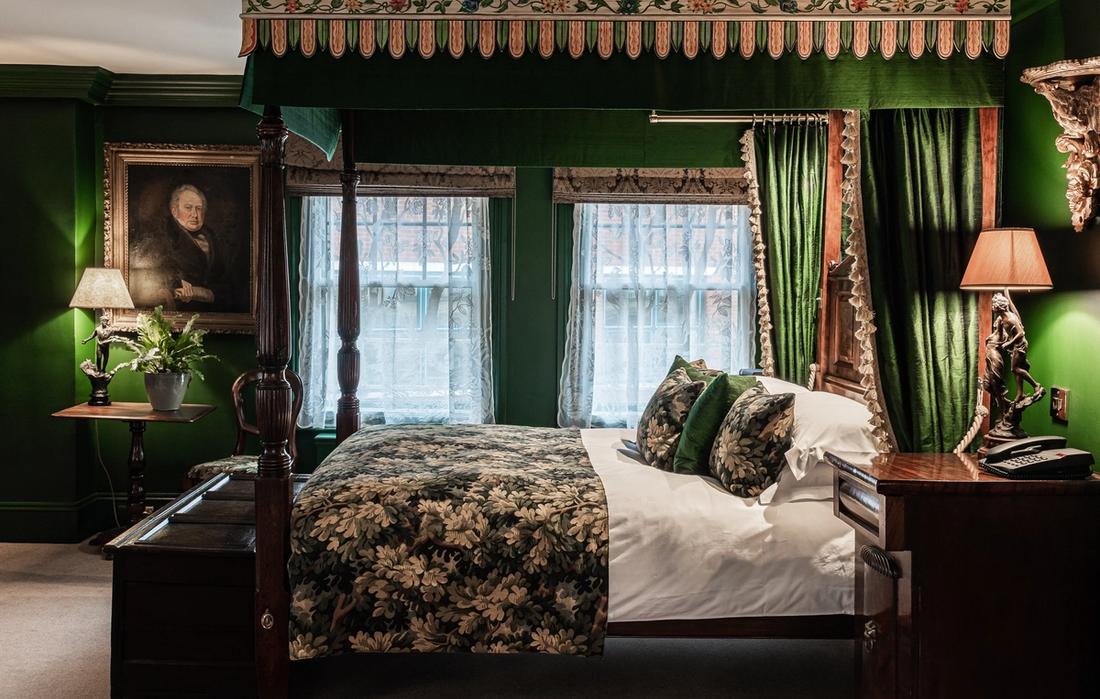The Good Hotel Guide is the leading independent guide to hotels in Great Britain & Ireland, and also covers parts of Continental Europe. The Guide was first published in 1978. It is written for the reader seeking impartial advice on finding a good place to stay. Hotels cannot buy their way into the Guide. The editors and inspectors do not accept free hospitality on their anonymous visits to hotels. All hotels in the Guide receive a free basic listing. A fee is charged for a full web entry.
The Good Hotel Guide
About Us
Independent
Recommended
Trusted
Independent
Recommended
Trusted

Duvet nightmare
All blog posts
3 minutes
7 Dec 2019
Duvet nightmare
All blog posts
3 minutes
7 Dec 2019
By Adam Raphael

Never mind Brexit, there is nothing like duvets for dividing the nation. Over the past half-century, they have taken over bedrooms mainly because they are cheap and low maintenance. But why should anyone be forced to sweat for hours under a million mite-ridden duck feathers? A request for blankets and sheets at hotels these days is more often than not met by a blank millennial stare.
One exception is The Nare, a much-loved Cornish hotel above Carne Beach at Veryan-in-Roseland. Guests are always offered a choice of bedding at this well-run hotel owned by the Ashworth family. Many of The Nare’s guests are admittedly not in the first flush of youth. Duvets are a generational issue. Few under 50 have probably ever experienced the joys of crisply ironed cotton sheets and woollen blankets. And if offered the choice, most millennials would probably refuse. The idea of taking five minutes to make a bed with sheets and blankets is beyond them. Sadly, even the Queen has succumbed to the strains of modern life and switched to duvets for her guests at Windsor Castle.
Ah yes, the curse of time. Seven years ago, this letter, predicting the political storms which now beset us, appeared in the Daily Telegraph. ‘The duvet,’ declared a Mr Taylor from West Sussex, ‘is an invention of misguided Continentals and should be sent back to where it belongs, along with the ridiculous metric system and chilled lager. Any normal, vigorously sweaty Englishman will know that the duvet generates an overheated, fetid, jungle-like atmosphere in the marital bed where peace, not French or Italian hyperactivity, should reign.’
So much for over-sexed Europeans, let’s look at the real issue. In 2006, Worcester University researchers analysed ten typical duvets and found that they could contain up to 20,000 live house dust mites as well as bacteria and fungal spores. One duvet that apparently had not been washed for years contained nearly two ounces of skin and mite faeces. Professor John Emberlin, who conducted the study, concluded: ‘In some cases, the levels of allergens and contaminants were dangerously high to the point where they could cause symptoms of serious allergies and infections.’
Not surprisingly, the British Medical Journal has begun to report on a malady, known as Feather Duvet Lung disease, which is caused by inhalation of organic dust from duvets filled with duck or goose feathers. Of course, you can avoid these hazards by sleeping under a duvet stuffed with synthetics. Or you could chuck your goose duvet in the washing machine. But surely the wisest course is to sleep as did our ancestors under a natural fibre. Wool, the oldest textile material has been used to ensure a good night’s sleep for at least 10,000 years.
As the prescient, Mr Taylor pointed out: ‘England’s greatness was founded on wool. Sheep of Leicestershire, Northamptonshire and Sussex deserve our continued support; sleep under wool and not under duck feathers.’ That is a patriotic appeal endorsed by your curmudgeonly editor. If only more hotels would back it.


